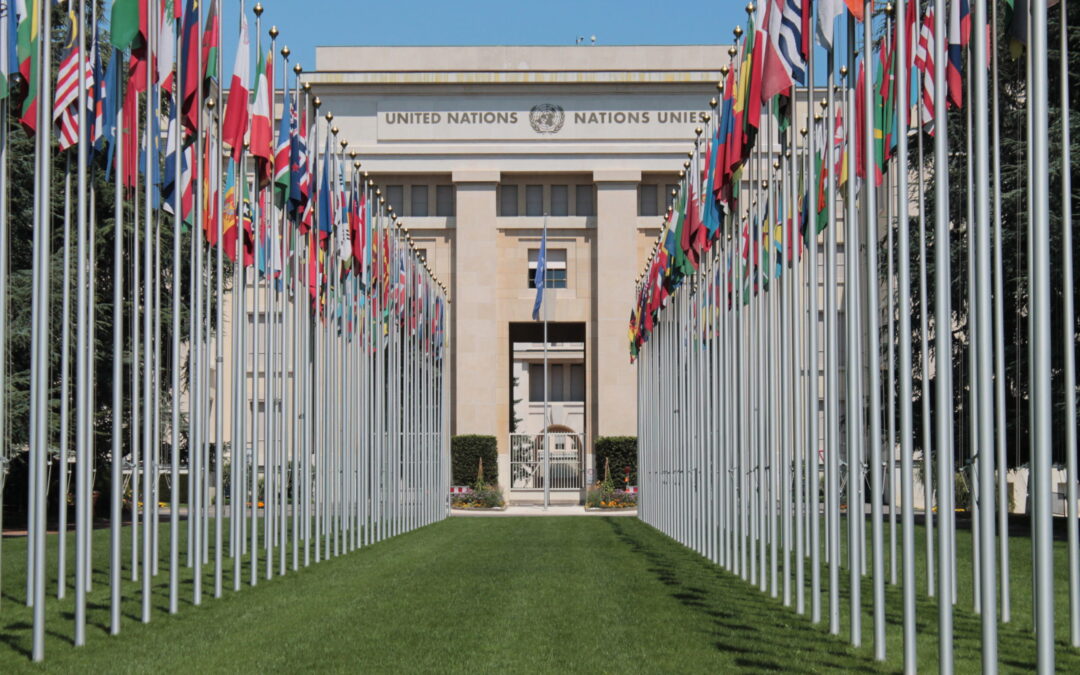
Mar 23, 2022 | Advocacy, Non-legal submissions
The ICJ today drew the attention of the UN Human Rights Council to the lack of respect, protection and fulfilment of the freedom of expression, assembly and association and to the widespread discrimination of LGBTI persons during the discussion on the outcome of the UPR of Eswatini.
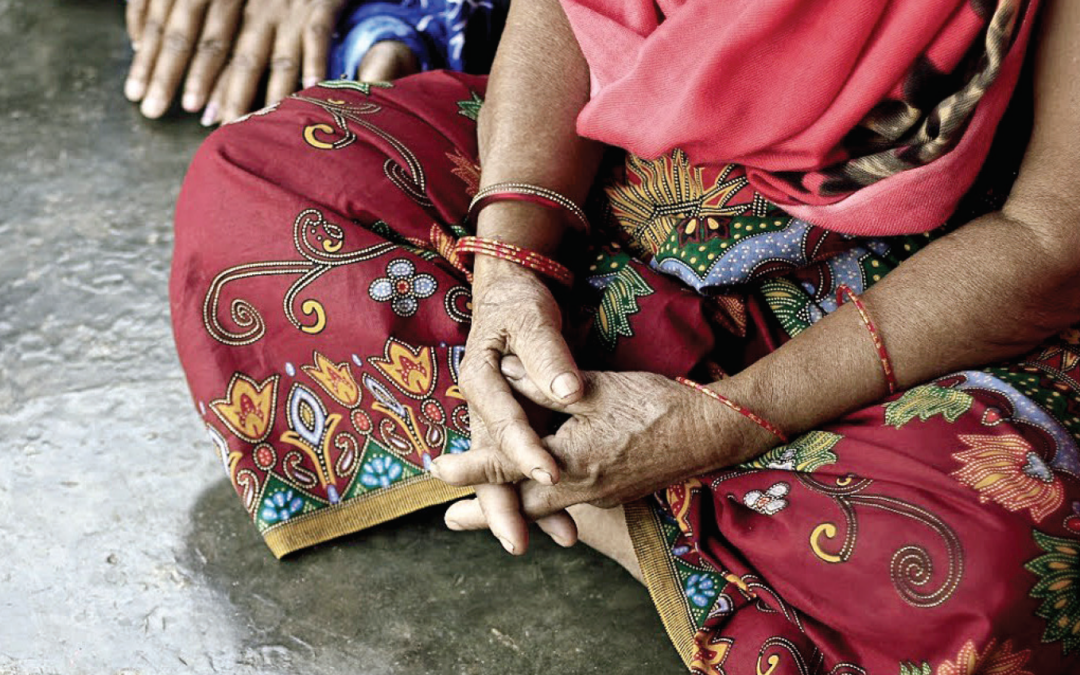
Jun 21, 2021 | Advocacy, News
Victims of sexual and gender-based violence during Nepal’s 10-year-long civil war still face major obstacles to justice, concluded the participants of a virtual consultation on 19 June 2021, on the occasion of the International Day for the Elimination of Sexual Violence in conflict.
The consultation was organized by the International Commission of Jurists (ICJ), in collaboration with the Conflict Victim Women National Network (CVWN), to address “Enhancing Access to Justice for Survivors of Conflict-Related Sexual Violence”. The Nepali version of ICJ Briefing Paper on “Nepal: Transitional Justice Mechanisms with Gender Perspective” was also launched as part of the consultation.
The ICJ consultation with stakeholders highlighted Nepal’s obligation under international law to ensure right to an effective remedy to the victims of sexual and gender-based violence of Nepal’s decade-long armed conflict, which came to a close with a peace accord in 2006.
Around 80 participants, including human rights defenders and conflict victims from different parts of the country attended the consultation. The participants expressed particular concern at lack of attention to gender issues in the context of Nepal’s transitional justice process since its very beginning, and urged that gender considerations be mainstreamed in the transitional justice process.
Ms. Shrijana Shrestha, Chairperson of the CVWN, underscored the lack of government data on victims of conflict-related sexual violence, and denounced the hurdles victims face in seeking justice, due to social and cultural taboos, lack of a support system, and the current statute of limitation to register complaints of sexual violence.
Ms. Mandira Sharma, ICJ Senior Legal Adviser, highlighted that, as a party to various international human rights instruments, Nepal has an obligation to ensure victims’ right to an effective remedy. Further, she expressed concern about the lack of political will since the beginning of the peace process to address the needs of women victims, in particular of victims of conflict-related sexual violence. She emphasized the need to amend the Truth and Reconciliation (TRC) Act in consultation with victims of the armed conflict.
Similarly, Dr. Susan Risal, human rights activists, emphasized the need to develop strong strategies to deal with conflict-related sexual violence in Nepal, taking into consideration the best practices of different countries.
Ms. Laxmi Pokharel, ICJ Legal Adviser, pointed out that the ICJ Briefing paper (“Nepal: Transitional Justice Mechanisms with Gender Perspective”) has analyzed the TRC legislation comprehensively, and can therefore be of use as a powerful advocacy tool for legal reform. She summarized the main findings of the briefing paper and its recommendations, including:
- Amend the TRC Act, through consultative and participatory process, in line with the Supreme Court’s order and Nepal’s international obligations;
- Ensure the participation of women in both Commissions (i.e., the Truth and Reconciliation Commission and the Commission on Investigation of Disappeared Person) at all levels of staffing and in the appointment of Commissioners with a view to ultimately achieving gender parity;
- Provide gender-sensitive training to the Commissioners and staff of the Commissions in order to enhance their ability to address gender issues in their operation;
- Amend the Criminal Code to remove the statutory limitation for filing complaints of rape and other instances of sexual violence;
- Ensure that amnesties and mediation will not be granted to perpetrators of gross human rights violations, including rape and other forms of sexual violence.
During the discussions, the participants highlighted the following major concerns:
- Despite more than six years of its establishment, the Truth and Reconciliation Commission (TRC) and the Commission on Investigation of Disappeared Person (CIDP) have failed to ensure victims’ right to truth, justice, reparation and guarantee of non-repetition;
- There is an urgent need to identify victims of conflict-related sexual violence and provide them with support in order to address their immediate needs;
- The TRC Act needs to be amended in consultation and with the participation of all main stakeholders;
- The existing statute of limitation to file complaints of rape and other forms of sexual violence is a major barrier for victims of conflict-related sexual violence, and must be amended so that victims can access justice.
The event was organized under the ‘Enhancing Access to Justice for Women in Asia and the Pacific’ project funded by the Swedish International Development Cooperation Agency (SIDA). Due to the COVID–19 pandemic, the webinar was conducted virtually via Zoom and broadcasted live on Facebook. The webinar was conducted in Nepali with simultaneous English translation.
Contact
Laxmi Pokharel, ICJ Legal Adviser – Nepal, e: laxmi.pokharel(a)icj.org
Download
Briefing paper on “Nepal: Transitional Justice Mechanisms with Gender Perspective” in English and Nepali.
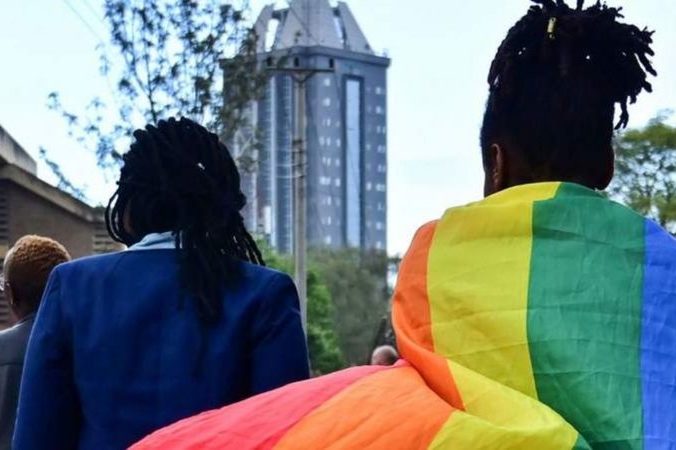
Apr 26, 2021 | News
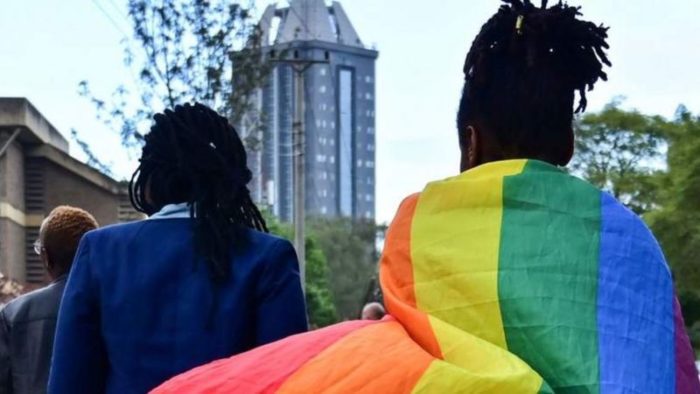
Homophobia is against African notions of ubuntu.
Over the past month, the killings of four gay men have made headlines in South Africa. Lonwabo Jack, a 22-year-old gay man, was killed on his birthday, 18 April. Earlier in April, two more gay men, were killed – Nathaniel Mbele in Vanderbijlpark and Sphamandla Khoza in Durban.
Lonwabo Jack’s killing occurred just two days after advocates for the human rights of lesbian, gay, bisexual, transgender and intersex people (LGBTI) led protests in front of Parliament in Cape Town demanding that the South African government address the countrywide homophobic violence that continues unabated.
The group Justice for Lulu, founded after Andile “Lulu” Ntuthela, a 40-year-old gay man, was killed in the Eastern Cape on 10 April. The group handed a memorandum to Parliament calling, among other things, for an urgent debate on hate crimes. The Gay and Lesbian Alliance of South Africa (GLASA), in turn, called for the government to speed up the adoption and enactment of the Prevention and Combating Hate Crimes and Hate Speech Bill B9 of 2018.
These hate crimes and attacks on the LGBTI community have been ongoing for many years. Homophobia is endemic in South Africa, despite the comprehensive and progressive legal framework, including legal protection for the human rights of LGBTI persons.
As attested to by the ICJ’s recent report, “Invisible, Isolated, and Ignored: A report on Human Rights abuses on Sexual Orientation and Gender Identity/Expression in Colombia, South Africa and Malaysia”, and illustrated by these ongoing attacks, these legal protections do not translate into real protection of human rights in practice.
“South Africa is a heteronormative society where patriarchy is deeply rooted; this contributes to violence and discrimination against LGBTI persons. The view that homosexuality is un-African is held by many. Political and cultural leaders have in the past publicly espoused anti-gay sentiments and this encourages discriminatory attitudes and violence against people based on their real or imputed sexual orientation, gender identity or expression”, said Kaajal Ramjathan-Keogh, Director of ICJ Africa.
Section 9(3) of the South African Constitution provides that the State may not unfairly discriminate directly or indirectly against anyone on the ground of sexual orientation, and the African Charter on Human and Peoples’ Rights (African Charter) grants protection against prohibited discrimination, and entitles every person to equal protection of the law.
Additionally, the African Charter entitles every individual to respect of their life and the integrity of their person, and prohibits torture, cruel, inhumane or degrading punishment and treatment.
In its Resolution on ‘Protection against Violence and Other Human Rights Violations against Persons on the basis of their real or imputed Sexual Orientation or Gender Identity’, the African Commission strongly urged “States to end all acts of violence and abuse, whether committed by State or non-state actors, including by enacting and effectively applying appropriate laws prohibiting and punishing all forms of violence including those targeting persons on the basis of their imputed or real sexual orientation or gender identities, ensuring proper investigation and diligent prosecution of perpetrators, and establishing judicial procedures responsive to the needs of victims.”
Notwithstanding South Africa’s legal obligations, LGBTI persons face significant barriers in accessing justice and effective remedies for human rights violations; particular challenges affect the criminal justice system, resulting in many cases concerning the protection of human rights of LGBTI persons not reaching the courts.
These barriers to access to justice and effective remedies for human rights violations include experiences of discrimination within the criminal justice system, as well as societal homophobia and transphobia. This is in contravention of South Africa’s duties under international, regional and national law to afford every person equal protection of the law.
The Prevention and Combatting of Hate Crimes and Hate Speech Bill needs to be adopted as a matter of urgency. It is important as measure of deterrence and to ensure that perpetrators of hate crimes be brought to justice.
The ICJ condemns the killings of members of the LGBTI community and calls on the South African government to acknowledge the discrimination, hatred and violence that LGBTI persons face every day in South Africa and to act decisively to address these harms.
Progressive legislation is not enough, the criminal justice system needs to be sensitized and educated to eliminate experiences of societal homophobia and transphobia. We echo the demands in this joint statement by multiple human rights organizations in South Africa.
Whatever one’s real or imputed sexual orientation, gender identity or expression, nobody should have to live in fear, everyone should be able to have trust in the police and judicial system. The homophobic acts and sentiments in South Africa are against African notions of ubuntu. Society cannot be free, until all its people are free, and treated with dignity.
Contact:
Nokukhanya (Khanyo) Farisè, Legal Adviser (Africa Regional Programme), e: nokukhanya.farise(a)icj.org
Tanveer Rashid Jeewa, Communications and Legal Officer, e: tanveer.jeewa(a)icj.org
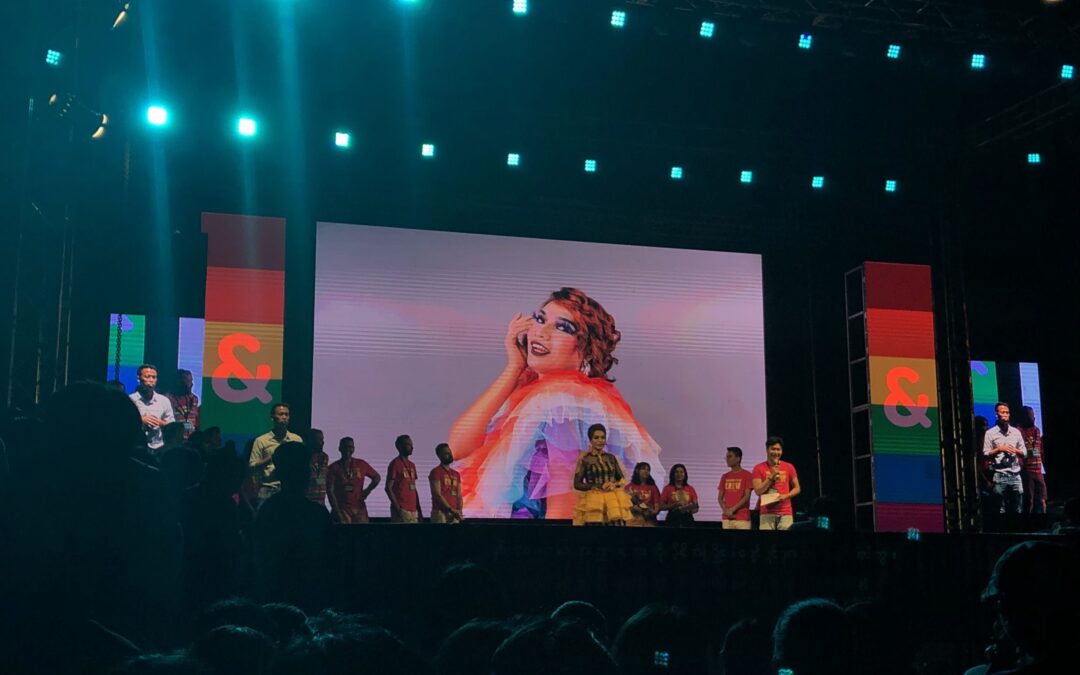
Jul 5, 2020 | News
The ICJ hosted live interviews with human rights defenders from Asia, Africa and Latin America to mark Pride Month, which is celebrated during the month of June in various parts of the world. The interviews took place from 22 June to 3 July 2020.
In total, 13 human rights defenders from 11 countries spanning three continents, who are working to uphold the human rights of of lesbians, gay, bisexual, transgender (LGBT) individuals, were interviewed.
The interviews discussed existing legal systems that discriminate on the basis of sexual orientation, gender identity and expression (SOGIE) and the impacts of COVID-19 on existing activism, .
The interviews aimed to provide quick snapshots of different country and regional contexts and a platform for LGBT activist voices on the varied and devastating impacts of COVID-19 on LGBT people.
Debunking cultural myths
In many countries around the world where people are criminalized or stigmatized as a result of harmful steretypes and prejudice on the grounds of their real or imputed SOGIE, public discourse tend to cast LGBT relationships and identities as threats to culture, religion or beliefs and the future of the nation. These interviews endeavoured to interrogate and debunk cultural and regional myths surrounding SOGIE identities as ‘Western’ constructs.
In a response to homosexuality being said to be ‘unAfrican’, Kutlwano Pearl Magashula, executive officer for program functions at the Other Foundation from Botswana, said:
“Utterances that suggest that homosexuality is unAfrican enforce stigma and violence and serve to carve deep roots in the consciousness of people around the world that breed discrimination and treating people differently.”
Devastating impacts of COVID-19 on LGBT people
Important impacts of COVID-19 on LGBT people were highlighted by different speakers, ranging from a loss of livelihood, vulnerability to violence at home and in public spaces, as well as challenges in accessing healthcare.
“There is violence against transgender women sex workers. The police arrest them, yell at them and shoot at them with rubber bullets. This is a recent episode here in Colombia and it is terrible. If they don’t work, they don’t have money to buy food and pay the rent. It is a difficult scenario,” Dejusticia researcher Santiago Carvajal Casas from Columbia said.
Pre-existing inequalities and landmark wins
Personal experiences of ‘life after’ important wins from around the world were shared. Some important gains from the decriminalization of consensual same-sex sexual relationships in Botswana and India, as well as the recent legalization of same-sex marriage in Taiwan must be celebrated. However, many of these wins may remain illusory for people who have been discriminated against on the basis of class, caste and other status inequality, or are without social support, especially in the face of COVID-19.
“What we really need is social protection, we need a safety-net for all those who are close to the poverty line and who are likely to go below the poverty line because of disasters like the COVID-19 epidemic or catastrophic out of pocket healthcare expenditures. We definitely need accessible healthcare for everyone and livelihood.” – Dr. L Ramakrishnan, public health professional and Vice-President of SAATHII, India
Watch the Facebook lives below:
Kutlwano Pearl Magashula, Executive Officer for Program Functions at the Other Foundation, on the board of LEGABIBO as the vice-chairperson and co-founder of the autonomous feminist collective Black Queer DocX (Botswana)
Busisiwe Deyi, Commissioner of CGE/ Lecturer of Jurisprudence (South Africa)
Letlhogonolo Mokgoroane, lawyer activist and podcaster (South Africa)
Lini Zurlia, advocacy officer at ASEAN SOGIE Caucus (ASEAN/Indonesia)
Yee Shan, member of Diversity Malaysia (Malaysia)
Sirasak Chaited, human rights campaigner, LGBT+ and sex worker rights activist (Thailand)
Santiago Carvajal Casas, Dejusticia researcher (Colombia)
Sih-Cheng (Sean) Du, Director of Policy Advocacy at Taiwan Tongzhi (LGBTQ+) Hotline Association (Taiwan)
Neeli Rana, transgender activist (Pakistan)
Riska Carolina, The Indonesian Plan Parenthood Association (IPPA) member (Indonesia)
Hla Myat Tun, Deputy Director from Colors Rainbow and Co-Director at &PROUD (Myanmar)
Dr. L Ramakrishnan, Vice President Saathii, activist, public health professional (India)
Nigel Mpemba Patel, Associate editor at the South African Journal on Human Rights and research consultant at ILGA World (Malawi)
***
Cover photo by Violaine Biex-Colors Rainbow, Myanmar.
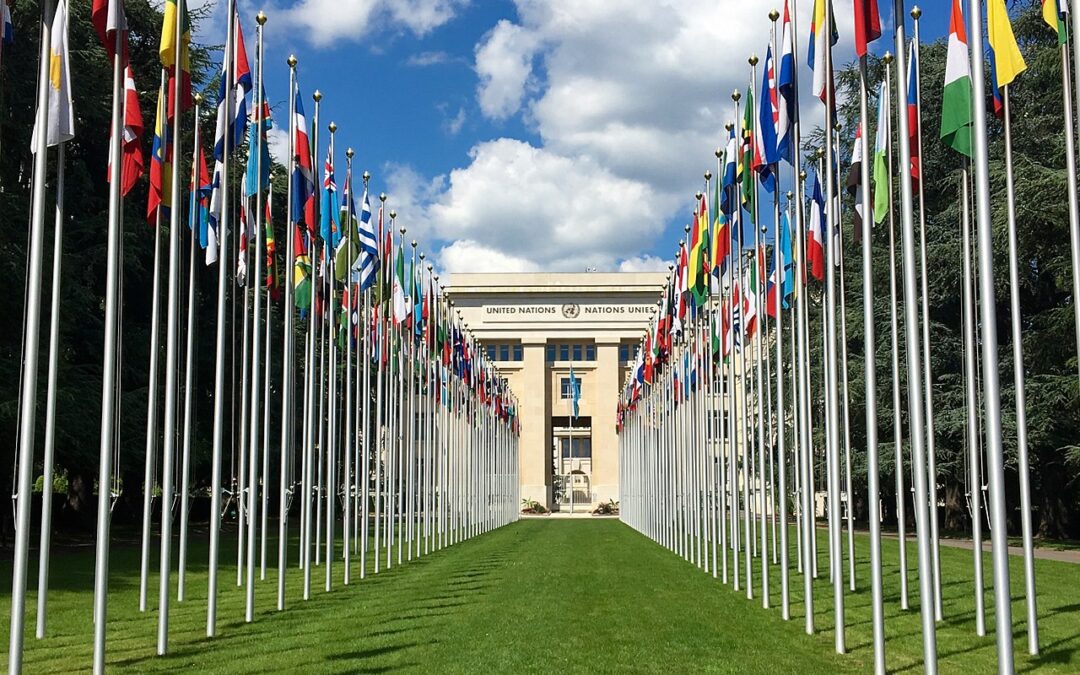
Jun 19, 2020 | Advocacy, Non-legal submissions
The ICJ has responded to a call for input by UN human rights experts, for their upcoming reports on COVID-19 and human rights.
The written submission, in response the joint call for submissions questionnaire issued by a number of UN Special Procedures, highlights key issues in relation to access to justice and the operation of courts, the right to food and the right to housing, and impacts on LGBTi persons and persons living in poverty, in a number of countries where the ICJ is active.
The submission can be downloaded in PDF format here: ICJ-UN-SP-COVID19SUBMISSION-2020-EN










